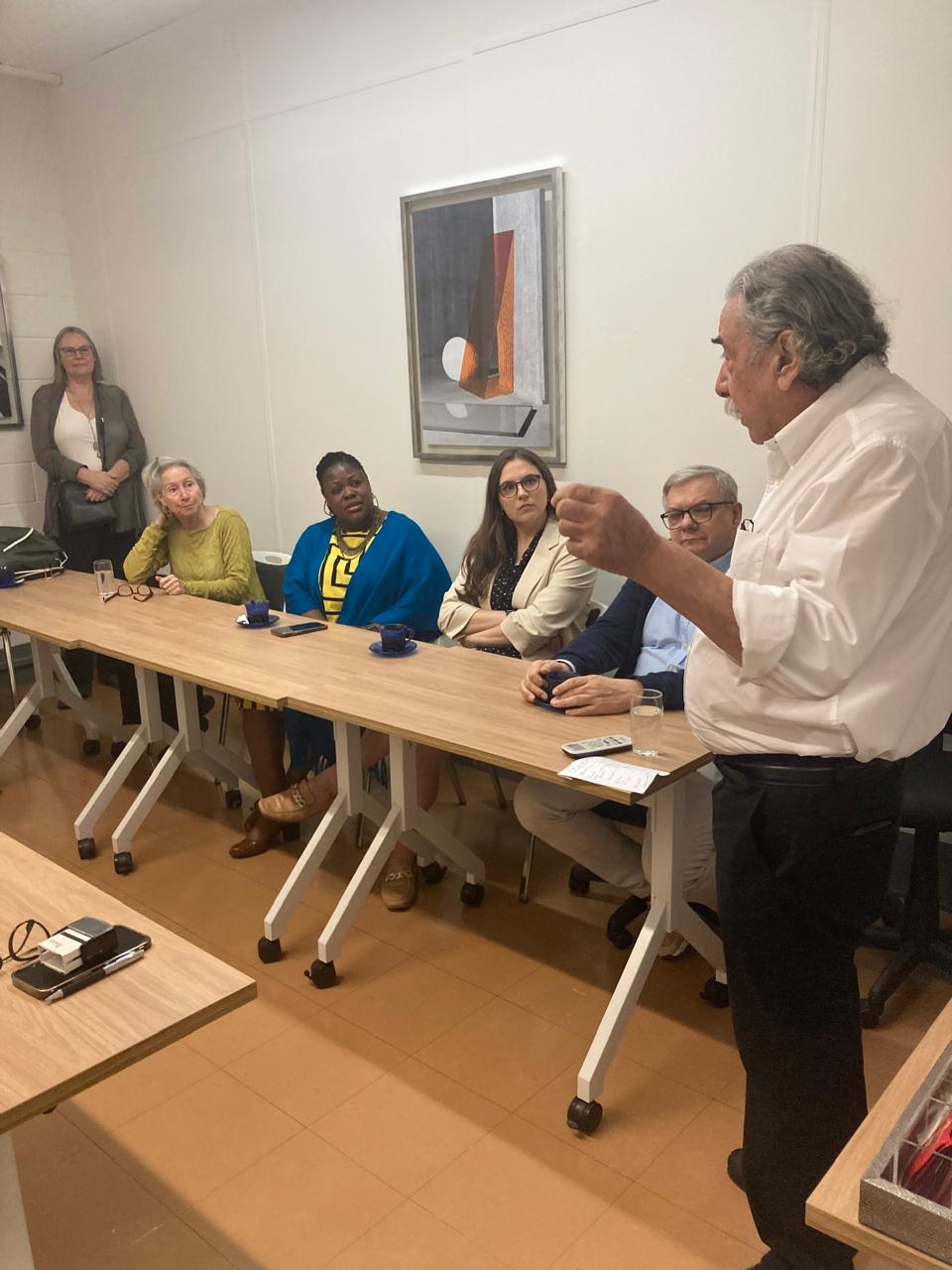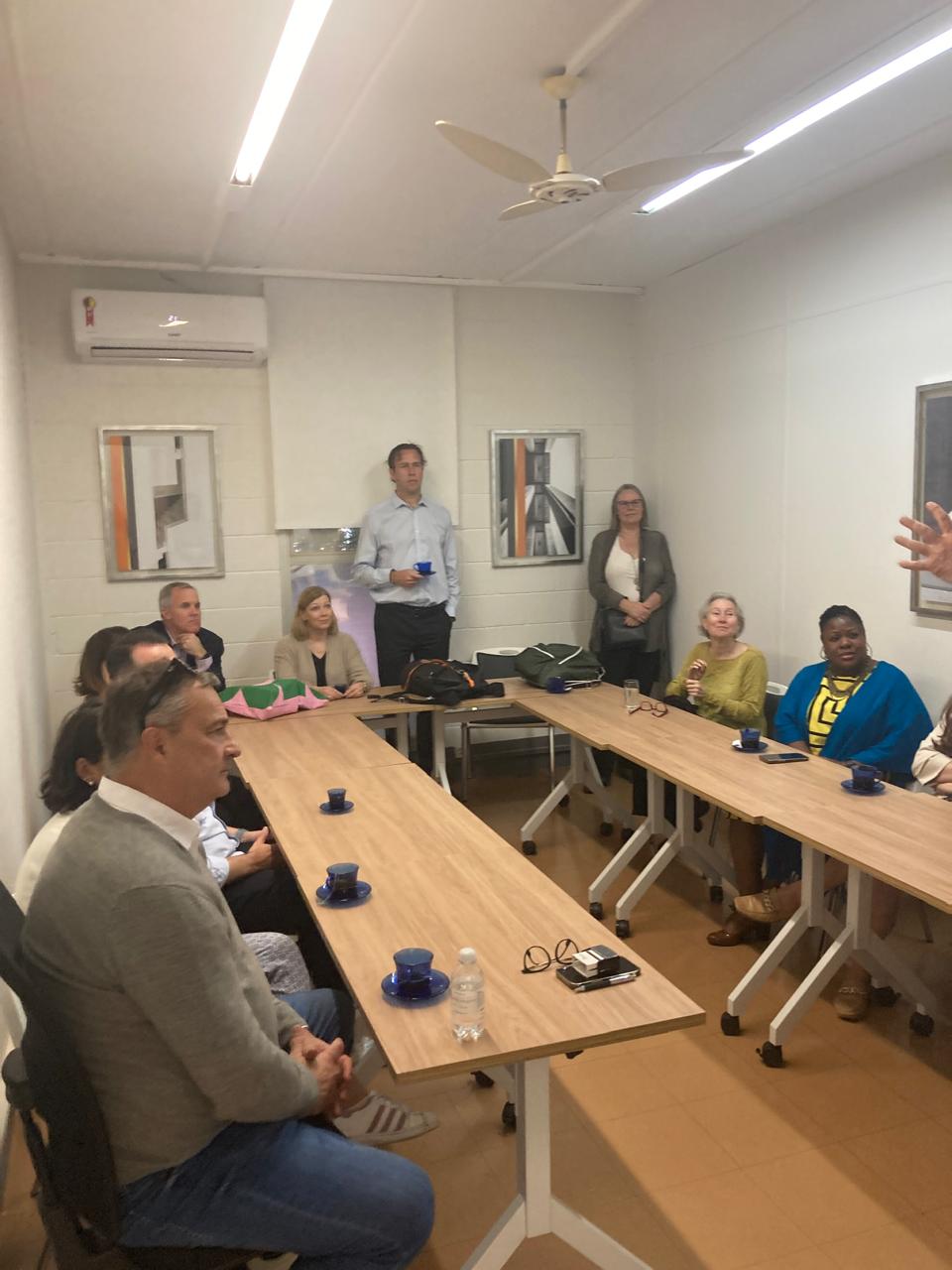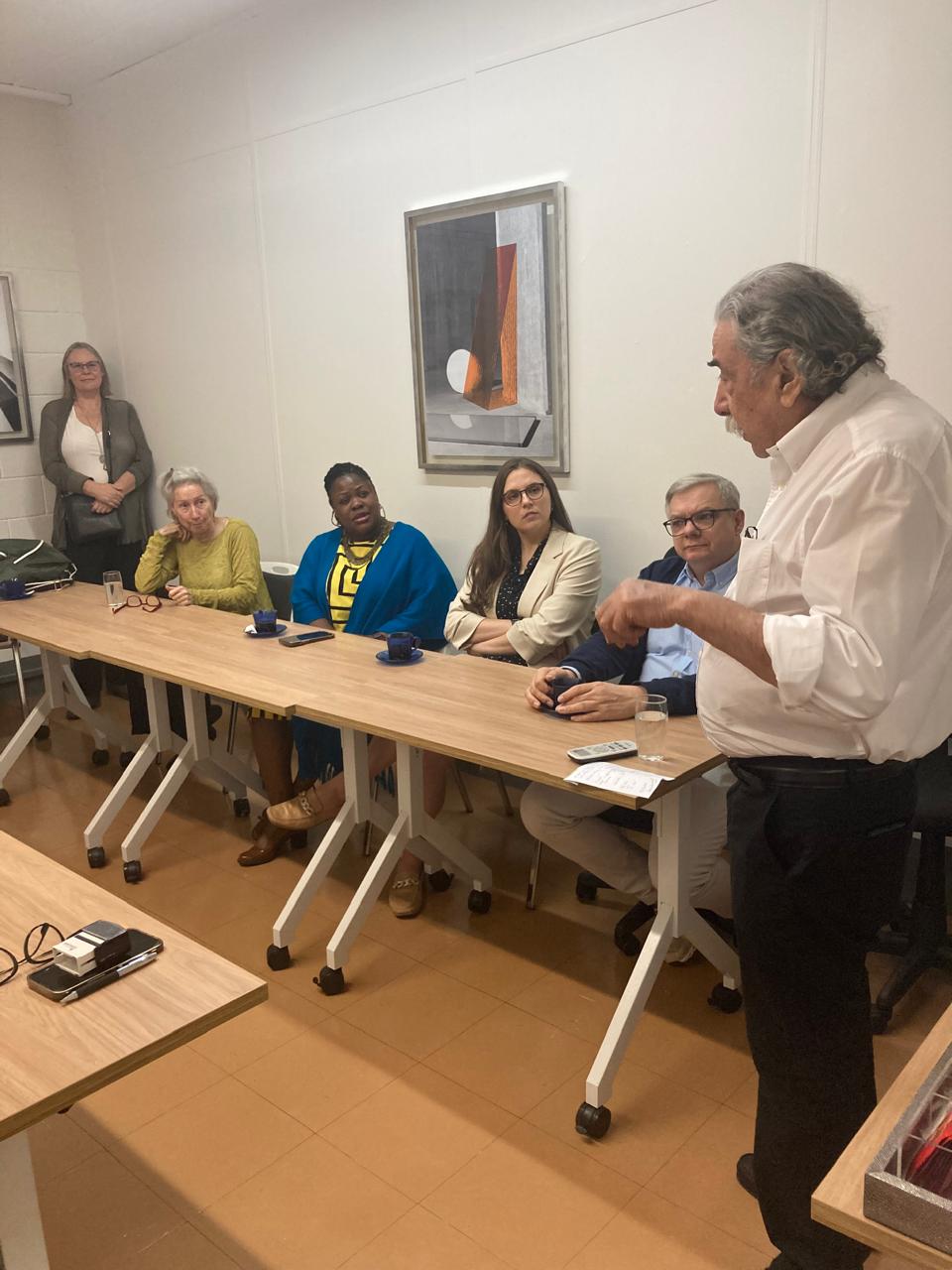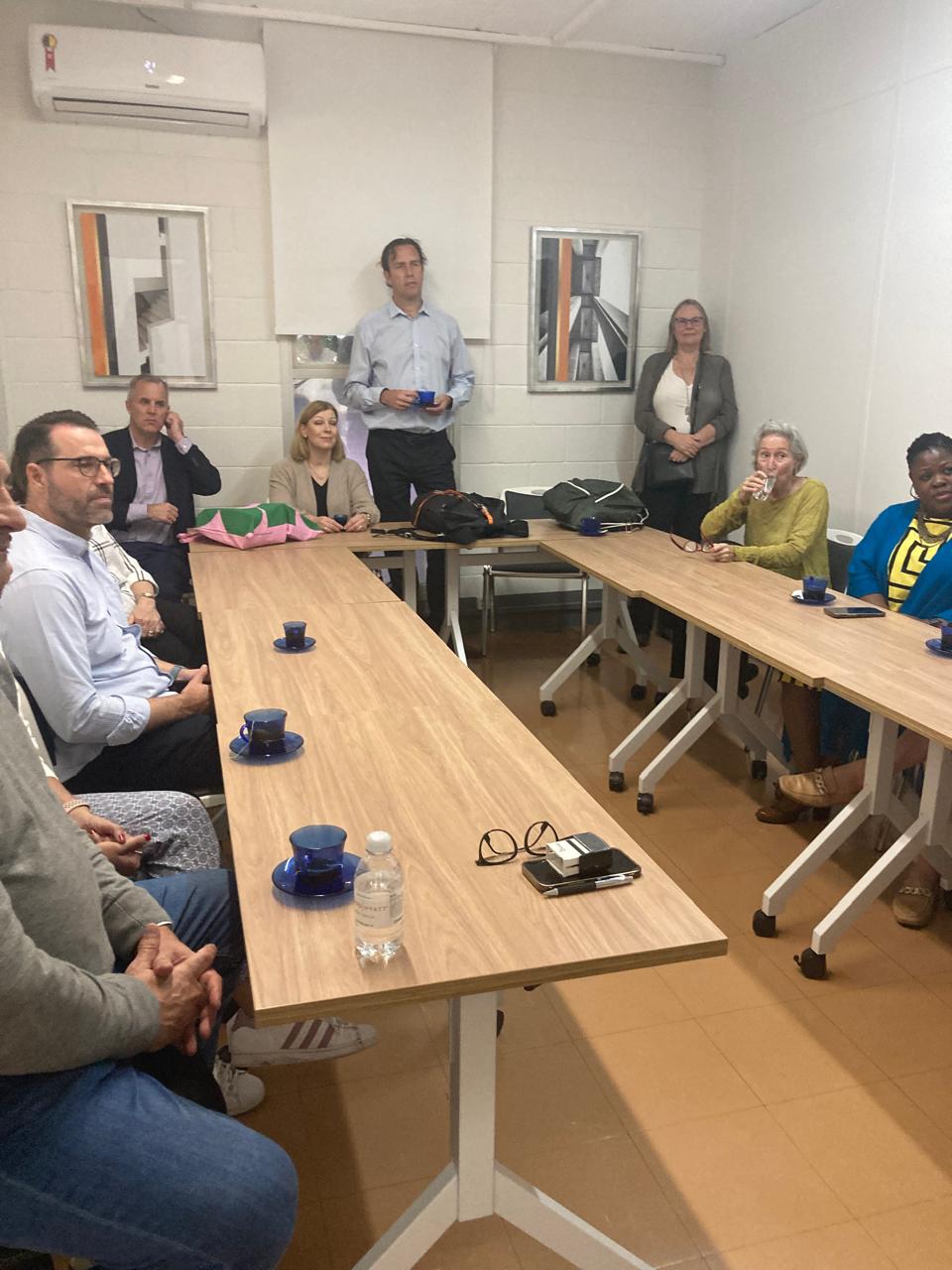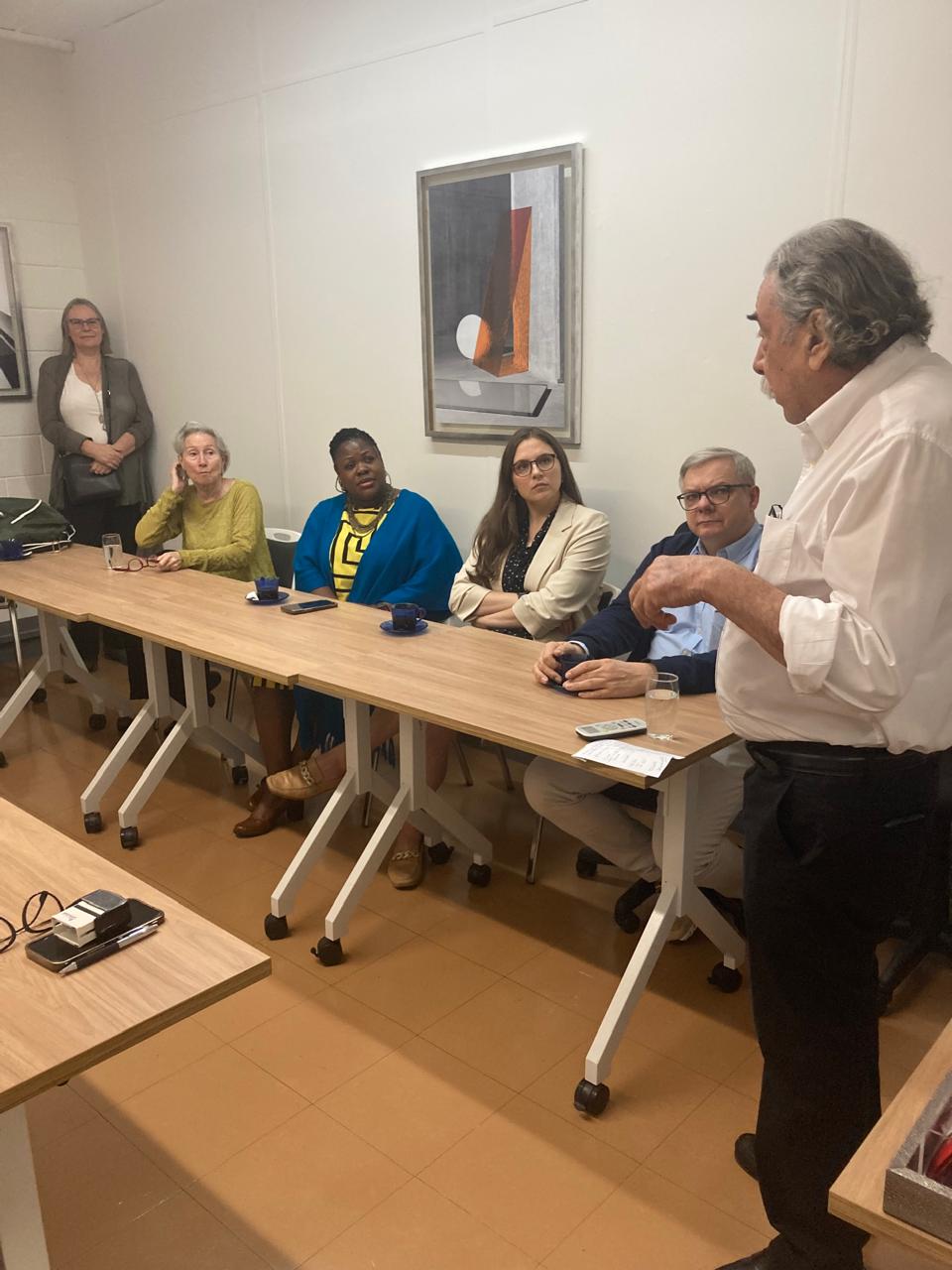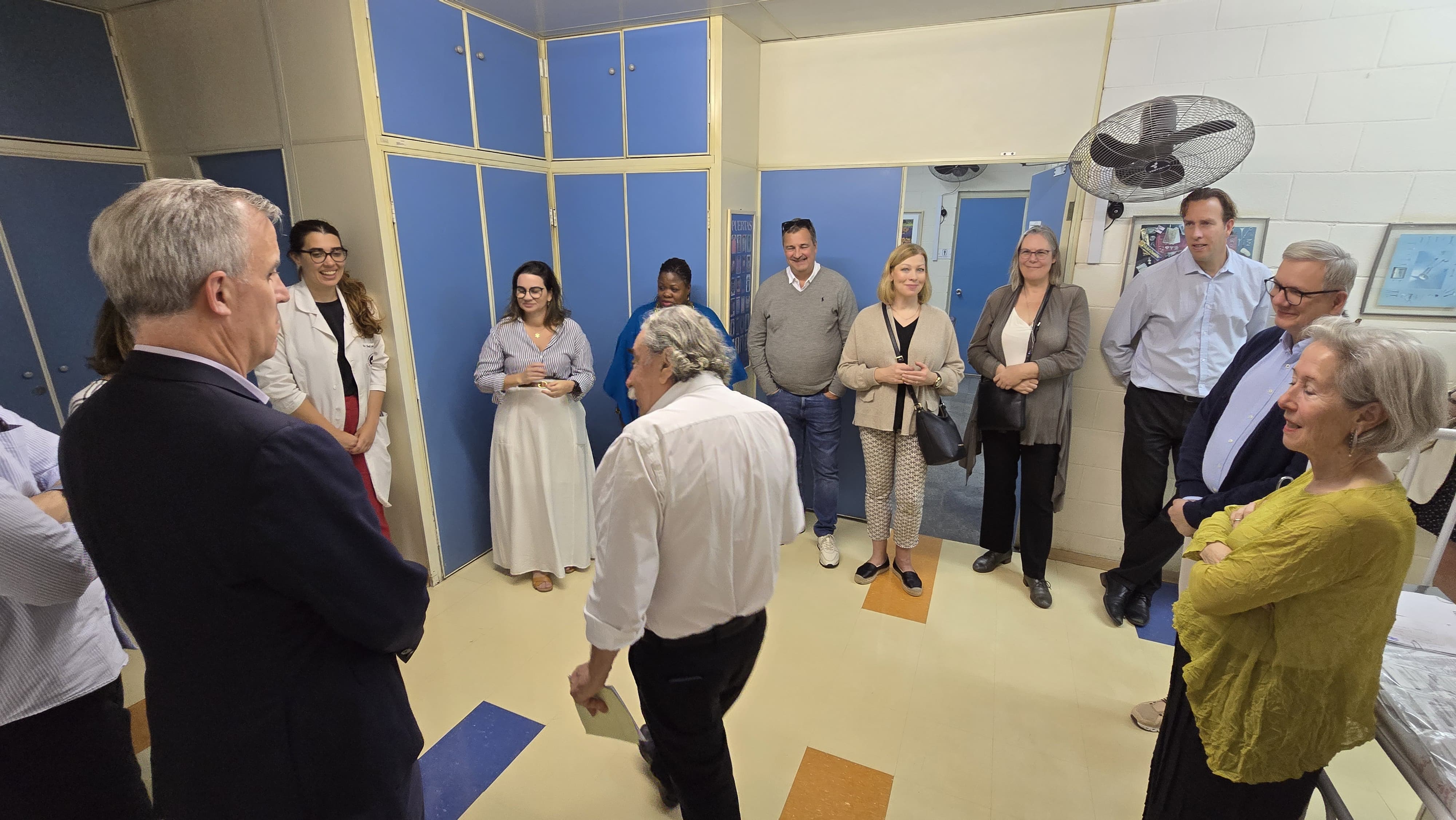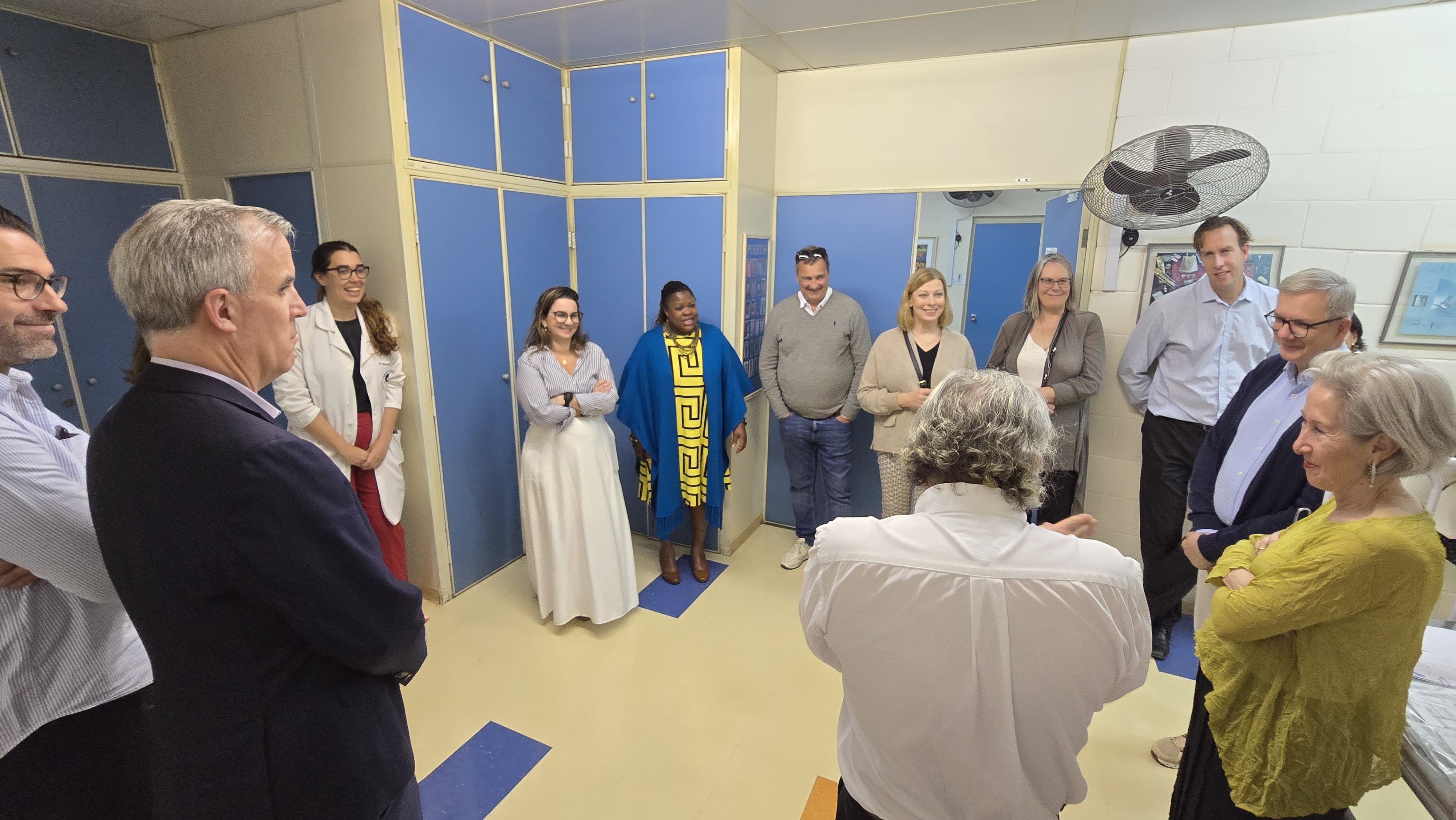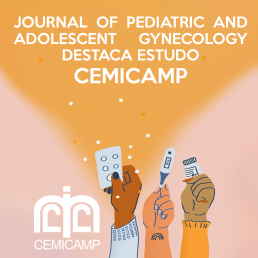CEMICAMP Receives Special Visit from ICA Foundation and Population Council: A Successful Partnership in Reproductive Health
On November 21, 2024, the Campinas Reproductive Health Research Center (CEMICAMP) had the honor of receiving an international delegation from the ICA Foundation and the Population Council, reaffirming the importance of the partnership between these institutions in advancing global reproductive health.
About ICA
 Founded in December 2003, the ICA Foundation is the result of a collaboration between Bayer AG, a global leader in specialized pharmaceuticals, and the Population Council, an international non-profit organization. The Foundation's mission is to provide hormonal intrauterine devices (LNG-IUS) on a non-profit basis, expanding access to contraceptives in low- and middle-income countries. With nearly 250,000 devices donated in 47 countries, the ICA Foundation has been essential in promoting family planning and reproductive health in vulnerable communities.
Founded in December 2003, the ICA Foundation is the result of a collaboration between Bayer AG, a global leader in specialized pharmaceuticals, and the Population Council, an international non-profit organization. The Foundation's mission is to provide hormonal intrauterine devices (LNG-IUS) on a non-profit basis, expanding access to contraceptives in low- and middle-income countries. With nearly 250,000 devices donated in 47 countries, the ICA Foundation has been essential in promoting family planning and reproductive health in vulnerable communities.
CEMICAMP
CEMICAMP is one of the leading reproductive health research centers in Brazil, affiliated with the State University of Campinas (UNICAMP). Recognized for its scientific excellence, CEMICAMP conducts clinical studies, develops health policies, and promotes access to quality services for women throughout Brazil.
Dr. Luis Bahamondes: Leader in Reproductive Health
President of CEMICAMP, Dr. Luis Bahamondes, Emeritus Professor and Full Professor in the Department of Obstetrics and Gynecology at the State University of Campinas (UNICAMP), is internationally recognized for his contribution to research in contraception and reproductive health. His leadership has been essential in implementing and expanding the use of the LNG-IUS in Brazil, benefiting thousands of women and fostering scientific advancements.
"The LNG-IUS is highly valued by women seeking a long-acting, reversible, and highly effective contraceptive. In addition to contraceptive benefits, it provides significant relief for those suffering from heavy or abnormal uterine bleeding — a condition affecting about 35% of women of reproductive age. In many regions of Brazil, donations from the ICA Foundation represent the primary, and often the only, access to this essential intrauterine device, making it an indispensable resource for reproductive health."
ICA Foundation & CEMICAMP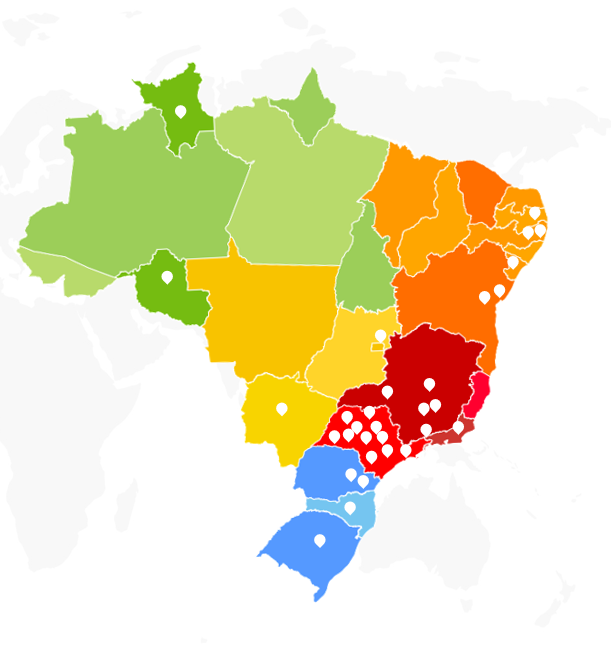
Since 2007, the collaboration between ICA Foundation and CEMICAMP has stood out not only for achieving its initial goal of providing intrauterine devices (IUDs) to public health networks but also for its academic impact. The partnership has resulted in over 60 articles published in scientific journals and the defense of 13 academic theses, consolidating the scientific relevance of the work being done.
In addition, through CEMICAMP, hormonal IUDs (LNG-IUS) provided by ICA Foundation, as well as copper IUDs, are sent to more than 30 centers in 14 Brazilian states, expanding the project's reach and contributing to the health of thousands of women across the country.
Population Council
The visit on November 21, 2024, was attended by high-level representatives from the ICA Foundation and the Population Council, strengthening the ties between the institutions:
- Lorna Begg (EUA)
- James (Jim) Sailer (EUA)
- Frank Strelow (Alemanha)
- Nahla Abdel-Tawab (Egito)
- Juhani Syrjala (Finlândia)
- Milly Nanyombi Kaggwa (Uganda)
- Anne Cecile Pfitzer (EUA)
- Maria M. Vivas Pérez (Colômbia)
- Marcel Van Valen (Holanda)
- Carolyn Louise Westhoff (EUA)
- Kai Risse (Alemanha)
- Karen Joanna Holopainen (Finlândia)
Impact and Future of the Collaboration
 This innovative partnership not only expands access to high-quality contraceptive methods but also fosters scientific research and health professional training. The exchange of experiences during the visit highlighted the transformative impact of the collaboration and reaffirmed the commitment of all parties involved to promoting reproductive health, women's empowerment, and equity in access to care.
This innovative partnership not only expands access to high-quality contraceptive methods but also fosters scientific research and health professional training. The exchange of experiences during the visit highlighted the transformative impact of the collaboration and reaffirmed the commitment of all parties involved to promoting reproductive health, women's empowerment, and equity in access to care.
The joint work between the ICA Foundation and CEMICAMP continues to deliver lasting benefits, strengthening health systems and building a solid foundation for future advancements in reproductive health.
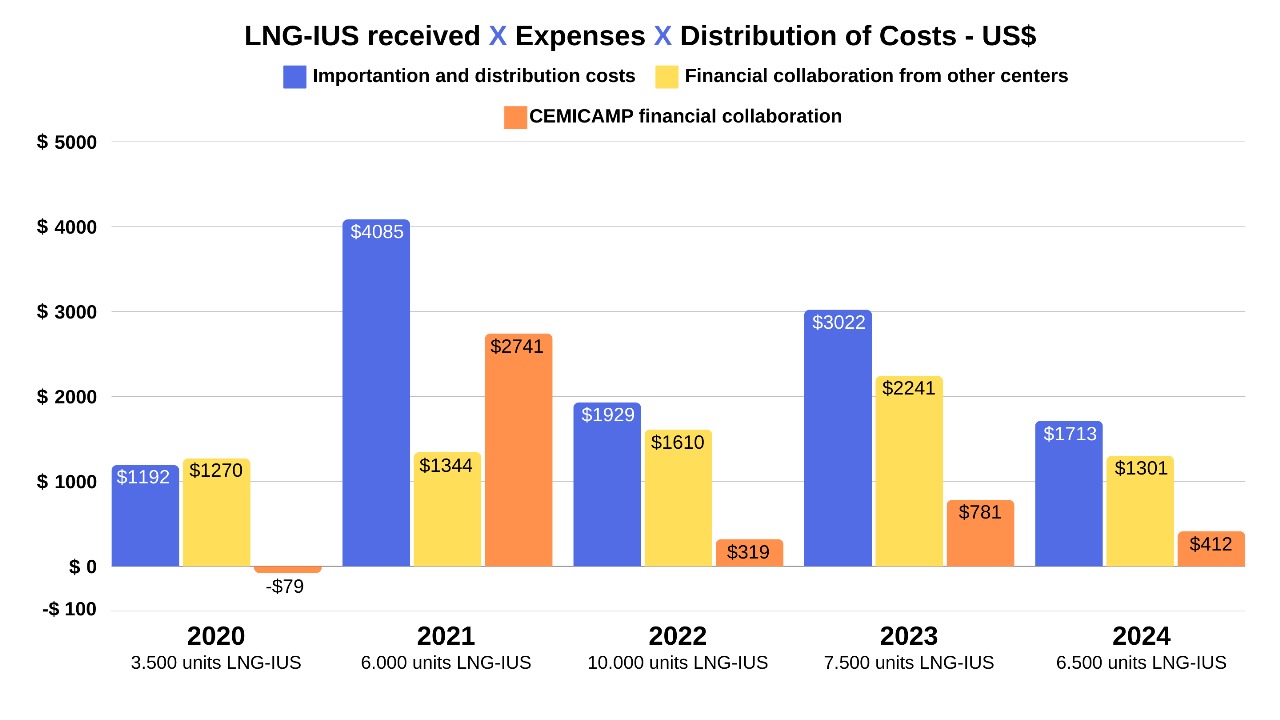
Partnership between CEMICAMP and ICA Foundation: Promoting Reproductive Health Since 2007
 In 2024, the ICA Foundation celebrates 20 years of commitment to reproductive health and equitable access to contraceptive methods worldwide. Since its founding in 2004, the organization has played a crucial role in promoting women's well-being, especially in regions with higher social vulnerability, by donating hormonal intrauterine devices (SIU-LNG) to public health programs and partner organizations. Over the past two decades, the ICA Foundation has positively impacted millions of lives, trained healthcare professionals, and contributed to advancements in scientific research, reaffirming its mission to transform access to family planning into a universal right.
In 2024, the ICA Foundation celebrates 20 years of commitment to reproductive health and equitable access to contraceptive methods worldwide. Since its founding in 2004, the organization has played a crucial role in promoting women's well-being, especially in regions with higher social vulnerability, by donating hormonal intrauterine devices (SIU-LNG) to public health programs and partner organizations. Over the past two decades, the ICA Foundation has positively impacted millions of lives, trained healthcare professionals, and contributed to advancements in scientific research, reaffirming its mission to transform access to family planning into a universal right.
Since 2007, the Campinas Reproductive Health Research Center (CEMICAMP) has maintained a strategic partnership with the ICA Foundation, a global organization dedicated to access to contraceptive methods and the strengthening of public health policies. This collaboration has played a key role in expanding access to long-acting, highly effective contraceptive options, especially for low-income populations in Brazil.
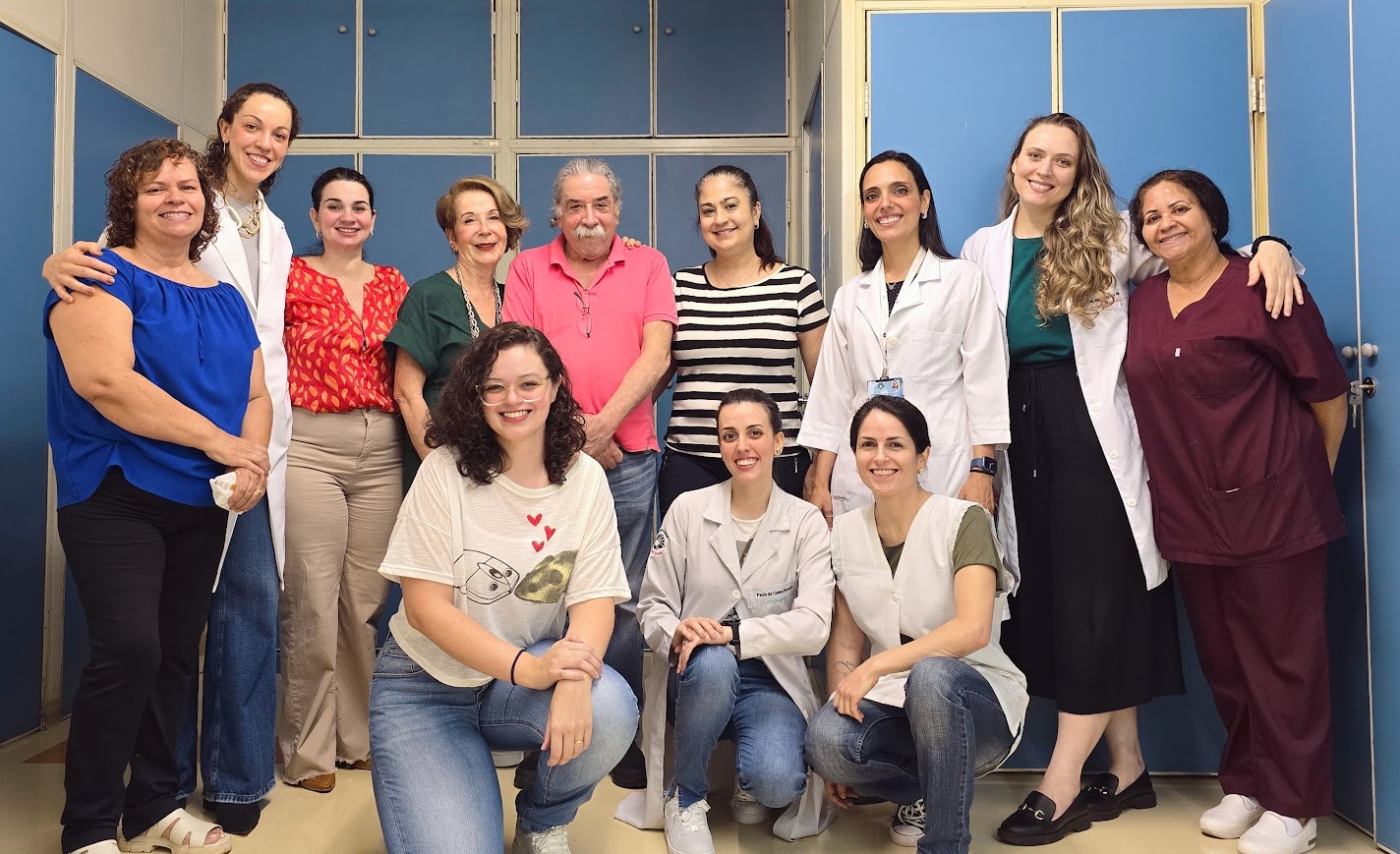 Benefits for Public Health and Research
Benefits for Public Health and Research
- Expansion of access to hormonal IUD:
- Thousands of devices have been provided over the years, allowing women who otherwise wouldn't have access to this method the opportunity for choice and reproductive control.
- Strengthening of scientific research:
- The donation of devices by the ICA Foundation has enabled the conduct of clinical studies at CEMICAMP, generating valuable data on the efficacy, safety, and acceptability of the hormonal IUD in various contexts. These studies have influenced health policies and guided clinical practice in Brazil and internationally.
- Social and educational impact:
- Healthcare professionals received specialized training in the management and insertion of the SIU-LNG, promoting reproductive health education and improving care in public and private institutions.
- Contribution to the sustainability of the healthcare system:
- The expanded use of the hormonal IUD contributes to the reduction of healthcare system costs by preventing complications related to unintended pregnancies and reducing the need for more complex treatments.
 This partnership is an example of how collaborations between non-governmental organizations, philanthropic foundations, and research centers can generate a significant and sustainable impact on global health. Over more than 15 years, the joint work between CEMICAMP and the ICA Foundation has contributed to women's empowerment and improved the quality of life for women throughout Brazil.
This partnership is an example of how collaborations between non-governmental organizations, philanthropic foundations, and research centers can generate a significant and sustainable impact on global health. Over more than 15 years, the joint work between CEMICAMP and the ICA Foundation has contributed to women's empowerment and improved the quality of life for women throughout Brazil.
Complete Series of the International Group on Access to Hormonal IUDs
For decades, the hormonal IUD has been an available option in high-income countries, providing an effective and convenient solution for family planning. However, there is still a horizon of possibilities to be explored for this contraceptive method. A recent video, available for viewing, features experts discussing the future of the hormonal IUD, addressing its potential and the challenges in making this option equitably accessible worldwide.
In the latest edition of the Hormonal IUD Access Group video series, which reflects on the long journey toward the global introduction of the hormonal IUD, renowned experts including Gathari Ndirangu Gichuhi, Tabitha Sripipatana, Laneta Dorflinger, Jim Sailer, and Dr. Luis Bahamondes discuss the next steps for expanding access to this technology. Dr. Luis Bahamondes, who is the president of CEMICAMP, has been a central figure in the discussions covered in the three videos of the series, contributing his extensive experience and knowledge in the field.
The videos highlight the importance of achieving equitable access to the hormonal IUD, a product that not only expands contraceptive options but also addresses heavy menstrual bleeding, combats iron deficiency, and improves the quality of life for millions of people around the world. With experts like Dr. Luis Bahamondes involved in these discussions, there is a clear focus on finding solutions that can be implemented across various socioeconomic realities, promoting a positive impact on global public health.
Dr. Luis Bahamondes's active participation in the discussions underscores the importance of continuous and informed dialogue on how to improve the distribution and acceptance of the hormonal IUD. His involvement in the three videos of the series reinforces the commitment of experts to finding ways for this technology to benefit as many people as possible, regardless of their location or economic condition.
Check out an excerpt from the discussion published on our Instagram:
For those interested in closely following these discussions and staying informed about advancements in the field, it is possible to subscribe to the HIUD Access Group newsletter through the website. Through this channel, subscribers can receive updates and information on new developments, initiatives, and events related to the hormonal IUD and its global impact.
In summary, the hormonal IUD represents a key piece in the puzzle of modern family planning, with the potential to transform lives. With dedicated experts like Dr. Luis Bahamondes leading the way, there is hope that broader and more equitable access will be achieved, allowing millions of people to benefit from this innovation in reproductive health.
Check out the complete series below:
Editorial of the Journal of Pediatric and Adolescent Gynecology Highlights Study Conducted at the Centro de Pesquisas em Saúde Reprodutiva de Campinas
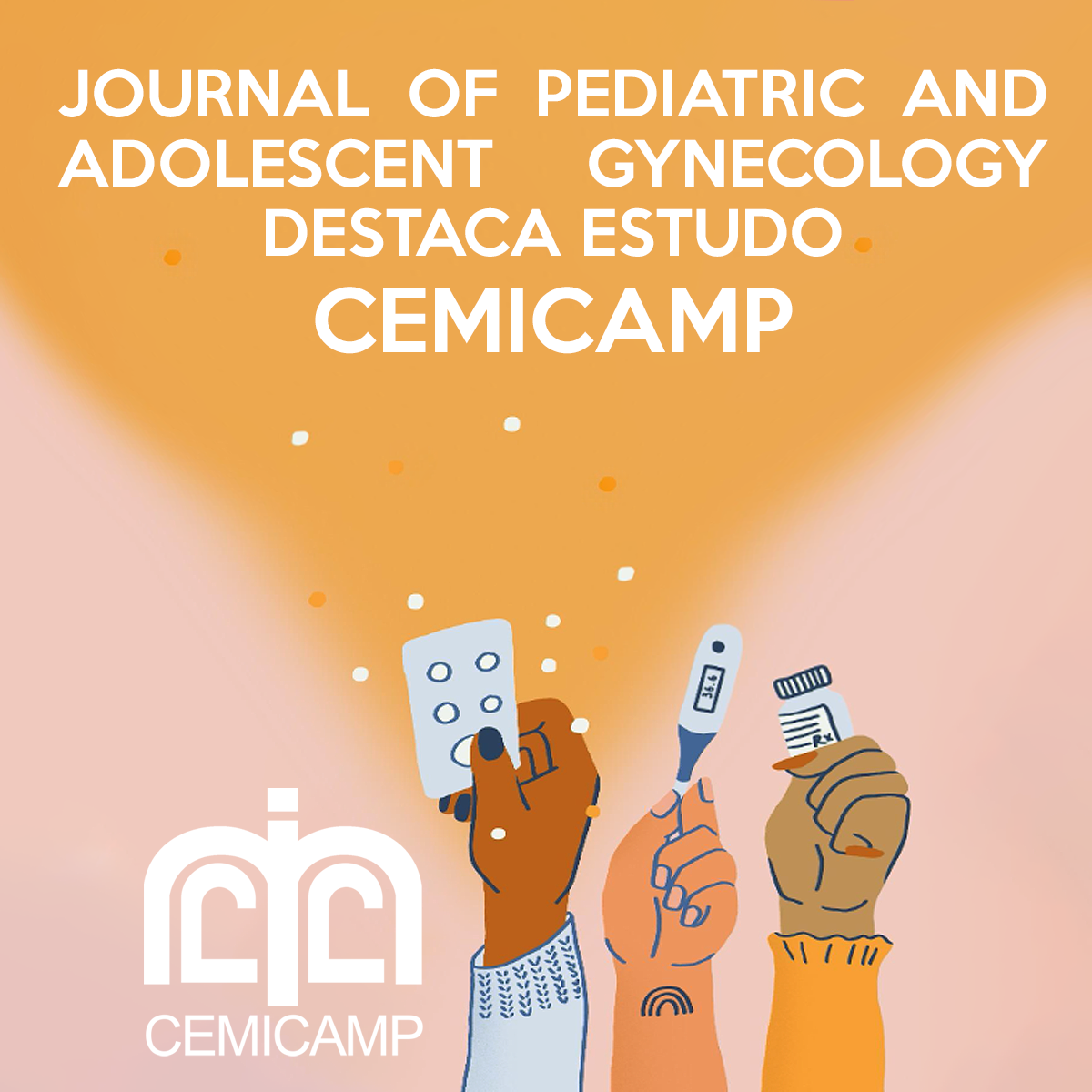
El editorial "Salud Sexual y Reproductiva en Estados Unidos, 2024: ¿Cómo votarás?" (traducción libre), de Paula J Adams Hillard MD (JPAG, Editora en Jefe), destaca la importancia crucial de las cuestiones relacionadas con la salud sexual y reproductiva en las elecciones de noviembre de 2024. Escrito después de las elecciones primarias en el estado de California, la autora enfatiza que, aunque algunas contiendas políticas aún están indefinidas, la elección para la presidencia no está tan reñida en gran parte del país, tanto para los candidatos demócratas como republicanos. La autora reconoce que la política puede ser un tema controvertido, incluso entre miembros de la misma familia, y que no todos asignan el mismo peso a todas las posiciones políticas de un candidato. Sin embargo, resalta que, en el contexto de las elecciones de 2024, la elección entre los candidatos es clara para quienes apoyan la salud sexual y reproductiva, la justicia reproductiva, así como el acceso a anticoncepción y aborto. Un punto clave abordado en el editorial es un estudio realizado en el Centro de Investigaciones en Salud Reproductiva de Campinas:
A recent study conducted by Bahamondes and colleagues in Brazil is shedding light on the efficacy and acceptance of intrauterine devices (IUDs) in adolescents. Recently published, the study is notable not only for its results but also for its innovative approach in an area of medicine that lacks randomized clinical trials: Pediatric and Adolescent Gynecology (PAG).
The study evaluated clinical performance, bleeding patterns, dysmenorrhea, and patient satisfaction with three types of IUDs: the copper IUD, the 52 mg levonorgestrel IUD, and the 19.5 mg levonorgestrel IUD in adolescents, with an average age of 17.9 years, 80.8% of whom were nulliparous. The results, although somewhat expected, provide valuable insights due to the randomized design of the study.
One of the main findings was the high continuation rate of all IUDs, which was 83%. However, continuation was slightly lower with the copper IUD compared to the hormonal IUDs. Additionally, the expulsion rate was higher for the copper IUDs, with 14.9 expulsions per 100 woman-years. The hormonal IUDs also showed advantages regarding menstrual bleeding and dysmenorrhea, with a significantly lower proportion of adolescents reporting these symptoms compared to the copper IUD.
A notable point was the high patient satisfaction rate, with an impressive 97.8% in the group receiving the highest dose of levonorgestrel. This suggests that, despite concerns or doubts some may have about the use of IUDs in adolescents, the vast majority are satisfied with their contraceptive choice.
or healthcare professionals and reproductive health advocates, this study provides strong support for the use of IUDs in adolescents, including those who have never been pregnant. Its significance extends beyond the Brazilian context, having global implications, especially at a time when access to safe and effective contraception is crucial for adolescent health.
While there are still challenges to address, such as education on contraception and access to healthcare services, the results of this study are a significant step in the right direction. They highlight the importance of evidence-based approaches in promoting adolescent sexual and reproductive health worldwide. With further research and increased awareness, we can continue to advance in protecting the reproductive rights of young women.





